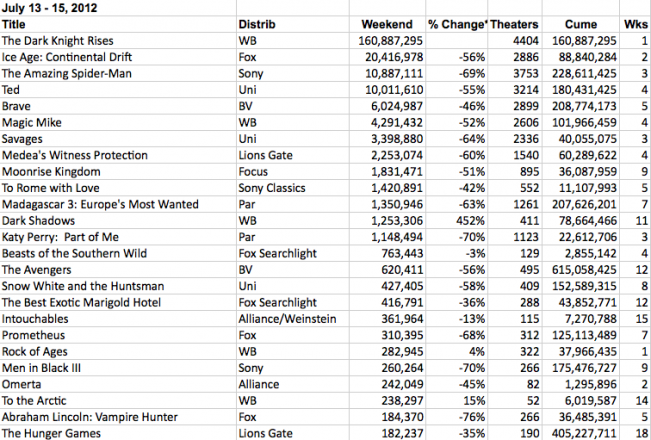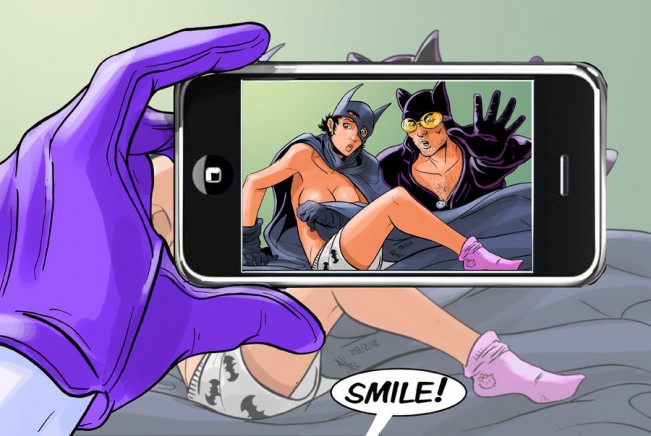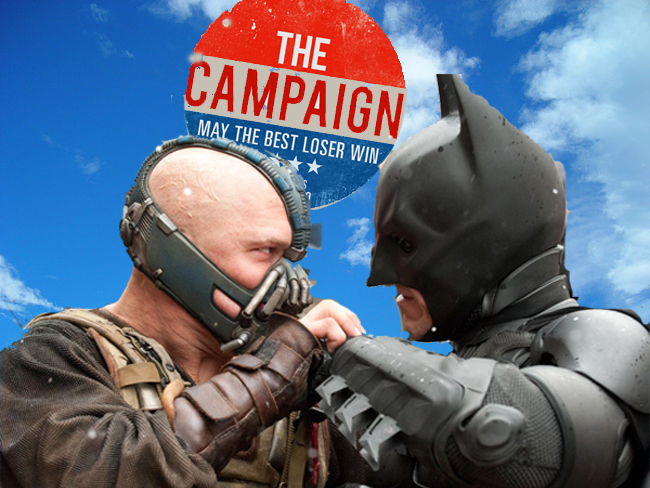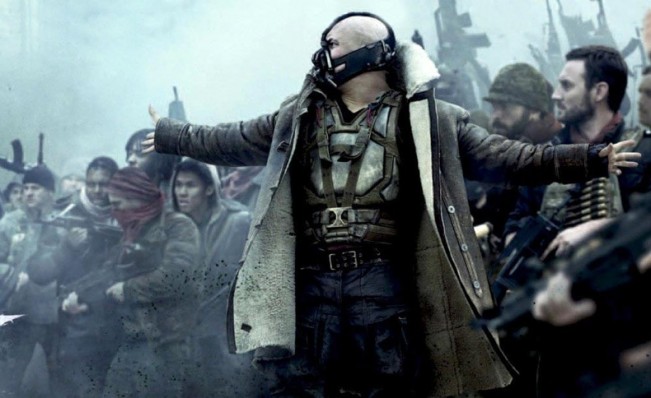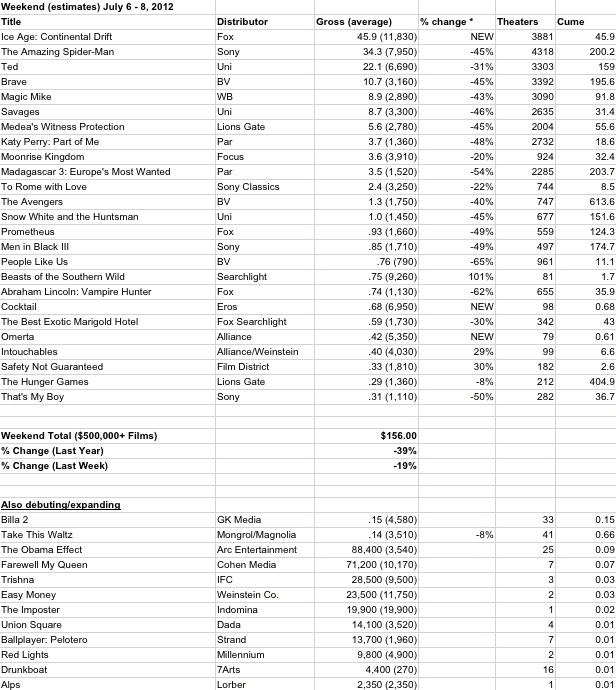The Hot Blog Archive for July, 2012
Weekend Estimates by Klady
So yes, I now think it is fair to assume that the entire box office took a significant hit this weekend because of the horror show in Aurora.
We will see how things go this weekend and next weekend…
97 Comments »Catching Up On Iffy: Story Two
The weekend when Nikki Finke stood up for the importance of box office reporting (God forbid she give up any page views) also has prompted a couple of wild pieces blaming the whole thing on movie marketing. And these were not from radical neo-cons or rabid candidates trying to attack liberal Hollywood on the campaign trail.
One is from Patrick Goldstein, left-leaning, but right-swinging blogger from the LA Times. And the other is from Mark Lipsky, who with his brother Jeff brought us films like Paris is Burning.
So let’s try to get this right… the answer to mass murder is censorship?
Wait! Neither man said as much… in so many words… as precisely.
It’s actually a little worse than just censoring movies. They think the ads for The Dark Knight Rises may have responsibility in this massacre.
“…marketing where, in the case of THE DARK KNIGHT RISES, untold resources are hysterically and relentless directed at cultivating and inciting fanboys – and fangirls – into a frenzy of obsession and anticipation.”
“…it is two things at once: a giant fireball of mass marketing as well as a disturbing, dystopian vision of our culture. That makes it a powerful magnet, both for passionate fans and sometimes, for crazed nutcases.”
“It was a conspiracy that included the filmmakers, the studio and their marketing teams and the media. Especially the media who conspire in these things with giddy abandon. They obviously didn’t have a hand in planning the actual shootings but the collaborators in this case poured tens – maybe hundreds of millions of dollars – and thousands of man-hours into manufacturing a giant petri dish filled with a greed-fueled brew irresistible to young, impressionable filmgoers and like Dr. Frankenstein their perverse experiment went horribly wrong.”
“I’ve always believed that artists should have the right to explore whatever territory they want, no matter how dark or discordant. But the public has rights too. We’ve always heard that if you don’t like what you see on your TV, you can turn it off. But today’s gargantuan Hollywood marketing campaigns are so all-pervasive that we can’t close our eyes and blink away the images.”
Oh.
My.
God.
Are you fucking kidding me?
Neither man mentions the 6000+ rounds or semi-automatic weapons or 100-bullet clip he bought without anyone raising an eyebrow, on the web and at local branches of national sporting goods chains.
Guns don’t kill people. Movie marketing kills people.
Do I need to make an argument here? I don’t think so.
9 Comments »Catching Up On Iffy: Story One
It’s been a very long weekend.
Not wanting to regress into the muck – I did allow myself to indulge some Nikki Finke idiocy – I didn’t write about the oddly confused story by Steven Zeitchik and Amy Kaufman in the LA Times. The headline and sub-head: “As big movies’ box office soars, the number of flops rises Dozens of major studio releases have been struggling, creating a widening chasm between filmic haves and have-nots. Studio executives are beginning to rethink budget and creative choices.”
This headline seems to be the premise with which Zeitchik and Kaufman approached this story. But what is frustrating… and increasingly predictable in LA Times industry coverage… is that the quotes from industry professionals that they report are completely rational and reasonable and the “reporters”‘ conclusions are not.
Here are just the quotes from working Hollywood:
Chris McGurk (former distributor, now leading digital cinema push) : “It’s always been the case that 20% of the movies in this town make 100% of the money. But I think you’re seeing the percentages get a lot more out of whack.”
“Ultimately, you’re going to see Hollywood go back to a broader portfolio business where they’re producing more movies across the budget spectrum. To keep doing it this way is suicide.”
Neal Moritz (producer): “With big swings sometimes come big misses. The middle has been cut out.”
“The movies that cost $100 million they’re now telling you to spend $60 million. The ones that are $60 [million] they’re telling you $35 million.”
Dan Fellman (distributor): “Maximizing the gross on a movie like ‘The Dark Knight Rises’ starts with the number of prints in the marketplace and the number of seats. We have a record number of prints and locations, and we have a record number of Imax theaters playing the movie. The reality is, you don’t want to make mistakes on your tent poles.”
Gene Harvey (exhibitor): “Things are not as steady and down the middle like they used to be. It’s so extreme now. For ‘Dark Knight,’ everyone says, ‘When is that coming out, man?’ On the lesser films, it’s like you don’t even have the poster up.…’People Like Us’— it’s unbelievable how few people come see it; you think more would at least stumble into it. But we just had a small number.”
Chris Aronson (distributor): “I believe that this business has changed into appointment movie-going instead of destination movie-going. There are a lot of alarming things about appointment movie-going, and none of them are good. I think what it does is pinch the movies in between that could be very satisfying.”
Unidentified Producer: “It seems more and more like a case where unless you have one of the few movies that makes people get off the couch, you’re in trouble. We have to look hard at which movies fit that description and concentrate on them.”
For me, the only remotely controversial comment is from Fox’s Chris Aronson… and I don’t discount his research. I just think it is the beginning of a story about this situation, not a throw-away in the middle. Its a conversation worth having. But this story doesn’t really touch it, aside to try to use it as ammo to prove what seems to be a predetermined point.
The rest is old news. Studios have been trying to pull back for the last 3 years, with a few bad exceptions.
I don’t want to pick apart every factual error in the piece, but one of the most heinous is calling Fast Five “a mid-range success in 2011 when it took in $209 million in domestic box office.” Start with the notion – ridiculous that the LAT is still playing this game – that studios make more than a couple of movies a year that are not heavily vested in the international box office. Then look at Fast Five‘s real number… $626 million worldwide, aka the 7th highest grossing film of 2011. It was a massive hit, coming off of a $125m budget and probably $100m in marketing, well into profit in theatrical alone with over $300 million in rentals (the part of gross returned to the studio) – a great rarity these days – and with almost all of the post-theatrical revenue as additional profit.
In fact, producer Neal Moritz had four studio films released in 2011. And three of the four (including Fast Five) grossed over $200 million worldwide. One was the delayed The Green Hornet, whose budget ballooned through reshoots and re-cuts, to a reported $120m. But Sony managed to push the worldwide on this Seth Rogen action comedy to $228 million. Now, without having been told the budget, would you assume that a $228m gross on a Seth Rogen action comedy should make for a huge success?
Next up, Battle Los Angeles, a low-profile, no-box-office-star action movie that did $212 million. The budget was $70 million. With around $115m in rentals, the probably didn’t clear profit on theatrical alone, but quickly got there on post-theatricals. Was the hope for a bigger gross? Sure. But did keeping the budget in line make this work out fine for Sony, Moritz, Relativity, and co-funder Original Film? Yes. In fact, it is an exemplar that already existed under the LAT’s nose, unanalyzed.
Moritz’s fourth film was The Change-Up, yet another body-changing comedy. Reported budget: $52m. Reported budget on Ryan Reynolds’ big comedy hit, The Proposal, which also starred big-money Sandra Bullock? $40m. Reported budget on Jason Bateman’s sperm-switch comedy with Jennifer Aniston, The Switch? $19m. Reported cost of Bateman’s other 2011 comedy, Horrible Bosses, with small turns from Aniston, Colin Farrell, Foxx & Spacey? $35m.
So… why was The Change-Up so expensive? That is what studios are trying to work out… even for bigger draws than Reynolds and Bateman. My guess, in this case, is that people thinking that Green Lantern would make Reynolds a superstar box office draw. They were wrong. But still, at $40m or less, Change-up would have been reasonably profitable. Instead, it may hit profit… it may not.
This is not brain surgery, folks.
(Of course, these reported budgets are not necessarily accurate. But that’s not the point. Shit happens. But visually simple comedies budgeted over $40 million are not, usually, victims of production overruns, but of over-sized negotiated salaries. Feel free to add your comments, but please understand that even these detailed points have room for more detail.)
The major studios released 103 movies (aside from their indie arms) last year. 26 of them grossed under $50m worldwide. 59 of them grossed more than $100m worldwide… 31 of those grossing over $200m worldwide. In terms of finding audiences, that’s a lot more haves than have-nots.
But the bottom line is the issue. And some of those haves are quietly money losers. And many of those have-nots are profitable.
I am not saying that there is not a growing spread between the big budgets and the small budgets and a squeeze on the middle budgets. But I am saying that statistical gamesmanship by media – like “made about half of their production budget or less at the domestic box office” – is obscene, especially in an industry that has suffered a major contraction in the last few years.
None of the four movies cited under that rubric of this story – Battleship, John Carter, Rock of Ages, Dark Shadows – could ever have projected more than 45% of their gross theatrical revenues coming from North America. In the first two cases, they are boom-boom films, which sell much better overseas. In fact, both films each grossed over $200m internationally. In the second two cases, the stars (Cruise and Depp) have seen their fortunes stay solid based primarily on their international draw. Cruise has made 10 films as a lead since 2000. None were less than 50% international. Three were under 60%, seven over 60%. One was 76% international. Of Depp’s last 10 studios films, three were under 60% (Rango, Corpse Bride, Public Enemies) and six of them were over 65%, topped by Pirates 4‘s 77% international.
As I have pointed out before, there are only 97 films that have ever grossed $500m or more. Last year’s 12 such films is the record for most in a year. The previous record was 9. So even though chasing mega-grosses is a growing preoccupation of Hollywood and hitting those numbers – whether by 3D bump, ticket price increases, or whatever – it increasingly possible, studios have continued to make more movies that need that number to be profitable at all than there are likely numbers of films that will hit that number.
And that, as Chris McGurk pointed out, needs to stop… again.
Five films have passed that mark so far this year… all but Hunger Games, mature franchises. In last year’s record-breaker, 10 of the 12 were mature franchises and two (Smurfs and Puss in Boots) had franchise history working for them.
Inception, 2012, and Mamma Mia! are really the only freak stand-alones to achieve the $500m club in the last five years of Hollywood’s chase of this golden dream.
As usual, Hollywood is a stupid place… but the people who work here, making decisions about massive amounts of money on one-off bets, are not stupid at all. They follow the money. Maybe the LA Times should do the same.
1 Comment »In Defense Of Box Office
The line between “important” and “trivial” is not a new issue for journalism since the birth of the internet. The most powerful gossips in American history worked during a time without television, much less the web. Their power came from the narrow corridors of media power, when one man (Hearst) could dominate the news through the newspapers he owned and radio (and early television) was dominated by 2 or 3 key figures because there was no room for more. (This is not to diminish those early broadcast newsmen, but Murrow did trivial crap as well as hard-hitting investigations.)
The question of whether box office requires the amount of “reporting” it receives in the media is addressed by the AP’s Dave Germain in “Will Anyone Really Miss The Box Office?”
It says a lot to me that Dave (whom I know) actually manages to squeeze in not only box office analysis into this piece, but both Friday estimates and a weekend estimate. So, I guess the AP really missed the box office. But getting beyond that minor hypocrisy…
The funny thing about the piece, which concludes by pretty clearly suggesting that the answer to the title’s question if, “no,” makes a very good case for why box office analysis, done with actual insight, is of real value. He also makes a good case for why the “Top 5” that runs everywhere is pretty worthless. But I would go even further. I would say that some of the box office analysis in major papers – specifically the LA Times and NY Times – is very weak on insight or reporting, casually repeating memes of older people who don’t much care about the movies that are every bit as shallow as Top 5 lists in the local Pennysaver.
Bad box office analysis is rampant. And that is somewhat trivial, but can be quite destructive when repeated endlessly. Just a couple of weeks ago, a fairly serious guy at Variety repeated the “teen boys have stopped going to the movies” meme… which is, simply, untrue. There is no statistic anywhere that proves this… or really, even suggests it. This goes back to the bullshitter-in-a-china-shop, Sharon Waxman, who made industry reporting that was unfit to print for the New York Times. The hysterical “teens are so busy texting and MySapce-ing and stealing movies, they couldn’t possibly keep paying for movie tickets.” Yet, every year since, the box office has been dominated by movies that are seen first and foremost by… you guessed it… teen boys.
And that is the danger of bad analysis. Repeated enough, it gets sticky, even if it was untrue from Day One.
That said, the Best Seller lists in the publishing business have been a much more significant part of the marketing of books for decades than Top 5 box office lists have ever been. And on television, a show can die of weak ratings in a couple of weeks… sometimes less.
I believe Dave was well-intended in his piece, but even his examples are examples of what is wrong with box office reporting. For one thing, the estimations of ticket sales are not close to factual. They are estimates based on estimates. Second, the 3D bump is not easily defined either. Third, international is responsible for over 55% of the gross on almost all the big grossers… not even mentioned. Fourth, inflation is the least significant issue when looking to pre-1990 box office, starting with Gone With The Wind opening at a time when television didn’t exist, that it’s gross has been counted over many re-issues that are obviously not in 1939 dollars, and that it was released as a premium-priced show, making the estimated pre-ticket price at the time of its release irrelevant. I could go on from them.
Look… The interest in box office can be silly. It surely can be obsessive. Every paper doesn’t need to run numbers every week. And it’s capital-I Importance is dubious. However, truth matters. Bad info can actually do damage over time to a business, even the movie business. I am actually surprised that the “people don’t want to go to the movies” lie hasn’t done more damage after 6+ years of it being repeated as though it was a fact.
On any given weekend, more than 10 million Americans are spending their money to go to the movies. I don’t see anything wrong with engaging in a discussion about that. And the passion of those discussing it is really not up to me.
And it’s worth pointing out that as I was writing this, the AP joined a few other major news dispersers that just couldn’t wait until tomorrow to run TDKR box office estimates from the weekend. As usual, the report does not bother to extend the fundamental fact that these are estimates, as you can’t know what the Sunday business will be until Sunday is over. Irresponsible on top of unfortunate.
25 Comments »TDKR Spoiler Space
Assume that all comments on this entry are SPOILERS…
49 Comments »Teaser Trailer: Man of Steel
Meh.
It looks like “Superman Begins,” aka Batman Begins on a Quaalude.
The only thing that seems apparent from this teaser is that Zack Snyder is not doing anything very Zack Snyder. On the other hand, that could just be a smokescreen. No idea.
So the kid has all the power in the world and has to go off deep sea fishing to find himself until a threat to the earth comes along? Is that it? Heavy hangs the crown.
Not sold. Not close.
81 Comments »No Friday Box Office Estimates This Week

Len Klady writes in: “As you’re likely aware, WB and some other companies have decided not to send out estimates … others have sent me emails requesting that I not share their estimates.”
Out of respect to all of these companies, as well as the dead, Movie City News will not be offering any box office coverage until Sunday. Thank you for understanding.
40 Comments »A Shooting In Our Church

I got out of the house today. Hung out with some friends who didn’t really talk about the shootings in the Colorado theater. I laughed. I told stories. I heard stories.
But coming home, I was hit again by the wave of sadness coming from these events. You see, for me, it’s not just another of the rage mass murders that are occurring with shockingly increased frequent in this country. It is not as personal for me as it is for anyone who was there, anyone within 50 miles, anyone who has survived a living nightmare like this one, or even anyone who was in a movie theater watching The Dark Knight Rises last night and takes “it could have been me” strongly to heart. I can only see the light reflected off of their very personal pain and fear.
But as an individual who works – however peripherally you see journalists as being – in the movie business, this is someone coming into our chosen church and killing people who were not only sharing the communal experience that is so much a part of so many of our lives. It was a massacre of some of the most enthusiastic members of the movie loving community.
The only difference between this mass killing and someone opening fire inside the Academy Theater or a screening room full of critics is the boldfaced names and news angle.
The movies are certainly not the new home of rage killers. Schools and fast food restaurants seem to lead the pack. But the frequency of these events seems to be increasing. This is the second effort at a rage killing this year, though thankfully the other one – a week ago in Tuscaloosa, AL – ended up taking no lives. There were three last year… 4, 6, and 8 dead… killers in their 20s, 30s, and 40s… no ethnic consistency. There were none in 2010, but 4 in 2009, taking 34 lives.
Those claiming there is nothing political to discuss here are, simply, wrong. But this entry is not about politics.
Every one of these events is like a punch to the solar plexus. But the recovery time, in a busy world with things to do and places to be, distanced from the events, has gotten quicker, even as the frequency of such events has increased. We, as a group, have gotten a little more used to these reports… a little more calloused.
But like the plane that crashed into a building just 4 blocks away from where I type, this event, somehow, feels closer to home. When I recall big personal losses in my life, my sense memory is of numbness… not being able to really listen, really think of other things too clearly, and not really caring. Hundreds of people are feeling that today because of this incident. I feel a level of it as I sit here, safe in front of my computer, screening tonight, interviews tomorrow, but agitated and sad… more than I usually do at these times.
And I feel no patience for business as usual. Not for the innocent byproducts of the daily work schedule, whether new reviews or cute podcasts. And certainly not for those trying to capitalize on this for their own aggrandizement. I don’t want to try to figure out what this will mean to the weekend gross or to pick at the efforts of the exhibitors, distributors, or journalists to process this horror show. I don’t want to moderate comments or worry about who is going to think what of this entry. I don’t want to use this sadness as a launching pad to get into intellectual debates.
I kinda just want to go to the movies… and all that it means.
20 Comments »BYOB: Friday 7/20/12
There are so many things to say about the Colorado shooting… and, for me, so little worth saying at this moment.
If I were in WB’s position, I would respectfully ask for all box office reporting on TDKR to be suspended until Sunday. It just doesn’t matter. The movie will be fine. But the opportunity to devalue human life lingers.
Here is some space for you all to discuss openly, as you see fit. Please be respectful of the dead and injured.
284 Comments »Emmy Nods
Emmy nods are weird for me almost every year.
Unlike the Oscars, most of the shows involved continue to compete for a number of years. Once certain shows have ascended to “part of the awards family,” they seem to slot in without fail. And the shows that don’t leap into the slot or two that become available each Emmy season almost never recover. Even with six nominees in most categories, this doesn’t leave room for anything very interesting to happen.
The tricky part is, however, that I tend to like all of the nominees too much to wish them ill.
Of the six Outstanding Comedy Series nominees, I watch five. I like all five… scratch that, I kind of love all five. And clearly, there is a huge audience for The Big Bang Theory, amongst voters and civilians. But is there really no place at the Emmys for shows like Raising Hope or Suburgatory? Or in the drama category, will The Walking Dead or Fringe ever be part of the Emmy conversation is any way?
There are glimmers of hope for some shows, like Louie, which failed to get a Best Comedy nod, but got a lot of other stuff. Or New Girl, with 2 of the ensemble of 5 nominated.
But Modern Family, 30 Rock, and The Big Bang Theory own comedy slots. The fact that there was a season of curb Your Enthusiasm to nominate pretty much guaranteed it a slot. And the voters added the excellent Girls and the also excellent Veep to the mix. Out this year are The Office, Glee, and Parks & Rec, which surely was seen as one of the likely-to-be-repeated-annually nominees.
See… this is why it’s weird… I don’t really think the “locked-in” shows don’t deserve to be there. And I don’t think the new entries don’t deserve to be there. It just feels, somehow, like there’s not much room for embracing the new shows that really need and equally deserve the love.
The idea that John Noble may get through the entire series of Fringe without ever being nominated for playing Walter Bishop on Fringe, one of those rare forever TV characters, drives me nuts. The idea that Greg Garcia’s crazy funny mixture of blue collar comedy and white collar irony in Raising Hope and the amazing performances that come with it (led by Garret Dillahunt and Martha Plimpton) may never get a little love while not being the poster child for “this year’s comedy” kinda sucks. And though I am not a Community person, I have seen the intense passion that its fanbase has… and aside from a writing nod, no room for the show at the inn. Ditto for Nick Offerman, who is a fan deity and an Emmy not-even-a-bridesmaid again.
And terrific as Mad Men is, is the show that pays for Mad Men, The Walking Dead, really just a prosthetic make-up show… or is it just too entertaining for too many people to be a nominee, what with Mad Men and the great Breaking Bad filling AMC’s quota of nominations?
But again… it’s not like anyone is sneaking in without earning it. With things all over the map on The Office and Glee kinda jumping the shark last season, their “snubs” don’t seem unreasonable. There was change. Drama turned over half of its slots too, though the return of Breaking Bad and the endlessly awarded Downtown Abbey seemed inevitable, leaving Homeland as the only real breakthrough… which was also pretty inevitable.
That’s the rub.
Television is really quite good right now.
Maybe the Emmys need to go to a Top Ten. People complain about it with the Oscars, but the reason I like it for Oscar is that it allows smaller films that have no chance to win to at least get the benefit of the competition.
Does it diminish the value of winning? No. Winning is winning. Does it make it less of a feat to be nominated? Yes. But much more than the movies, television is a business of habit. I’d love to see a few more habits encouraged.
16 Comments »The Politics Of The Dark Knight Rises (SPOILERS)
It’s pretty close to impossible to discuss this at all without going ALL SPOILERS. So I am going to write the piece after the jump. Come on in if you’ve seen the film or you just don’t care about spoilers.
25 Comments »Review-ish: The Dark Knight Rises (spoiler-free)

I will see the film again on Tuesday and I intend to write in greater depth after that screening. But just to get a few ideas on the record..
The Dark Knight Rises is, finally, the best of the Nolan Batman films. For the first time, the 3rd act is the best act in the film. Some may feel that this is because there is some form of “conclusion,” a word you should not try to parse before seeing the film. I feel it is that Nolan finally allowed himself to make the movie he’s been after twice before.
In fact, you would not be unfair to argue that The Dark Knight is somewhat superfluous after this film, in which Nolan finally clears out the pesky comic book movie from his consideration of power and capitalism and the danger of losing contact with your core beliefs, on whatever side of the argument you live.
That is not to say that there’s not a ton of comic book in this film. Nolan has raised the cool stakes, usually without falling into the trap of showing off his costly toys too gaudily. This is another beautiful production. And I am not sure, 100%, which filmmakers Nolan is riffing on this time. The last time, there was a lot of Friedkin and Frankenheimer, writ huge. This time, it’s a little more Lumet, with more than a hat tip to Pontecorvo’s The Battle of Algiers.
This film has, shockingly, a lot in common with this summer’s Spider-man reboot, in that there is a lot of talking, thinking, reconsideration, and for a very dark film, pleasure. I suspect there will be a lot fewer boo birds this time around, as this is still a piece of Nolan and it doesn’t ask fans of the series to reboot, so much as allow Nolan to fulfill his intellectual interests. Interestingly, this is, by far, the most emotional of Nolan’s films. The other comparison – which some will hate – is Matrix Revolutions, which fulfilled the filmmaker’s idea of what the series was really about, it was less satisfying for viewers who wanted it to come to a proper, cheer-inducing end. Nolan was not that self-indulgent. The close – which is loaded with spoilers – is powerful and audience generous (some will surely think way too generous). But unlike the Wachowskis, Nolan is no Buddhist… he’s a great artist and a pragmatist.
In fact, to sort out the politics of this film – which are much, much more complex than the incomplete themes of TDK – demand a second viewing to sort out.
None of this is to say that The Dark Knight Rises is a perfect film. It is certainly the best of the superhero movies this summer, mature in a way that Amazing Spider-man could become, and making the amusing, showy burlesque of The Avengers look as minor as it is. TDKR is too long, getting lost a little in the 2nd act, throwing so many things (including cameos) at the wall that the best of the new ideas can get less love than they deserve. But once the third act starts cooking, it pushes to the close with the best of the big movies.
Caine & Oldman get handed some really great moments here. Bale has more to carry than in TDK, reminding how terrific he was in Batman Begins. Anne Hathaway isn’t the traditional Catwoman here… but the role gets better and better as the film moves along. Joseph Gordon Levitt carries a lot of exposition and though he is terrific, he is part of the bogged down section of the film. But he’s put away boyish things and does great by Nolan. Marion Cotillard feels shoe-horned into the film most of the way, though she is lovely and interesting to watch.
Tom Hardy as Bane (whose dialogue tracks have been cleaned up since the IMAX event a few months back) is very Bond villain. I think they did the right thing with the character and Hardy is a true, pure heavyweight, but Bane spends most of the film as distant as a character as Heath Ledger’s Joker was intimate. One of the reasons why Bane is distant is the complexity and political nature of the screenplay. Like I wrote, I think they went the right way with the character, but it doesn’t make for the clearest iconic memories.
The Dark Knight Rises is the movie a filmmaker makes after they have earned the freedom to break the mold and to reach for something bigger than the franchise. Some people love that. Some people hate that. I am in the former camp.
More on Wednesday…
204 Comments »Weekend Estimates by Ice Klady 4
So not a lot has changed since yesterday. Spidey held a bit better than I expected, hitting $200m domestic and $520m worldwide. It’s the 3rd film this summer in each category to crack those marks. Ted remains the strongest wide-release hold with Wes & Woody having that distinction on the indie side.
41 Comments »




